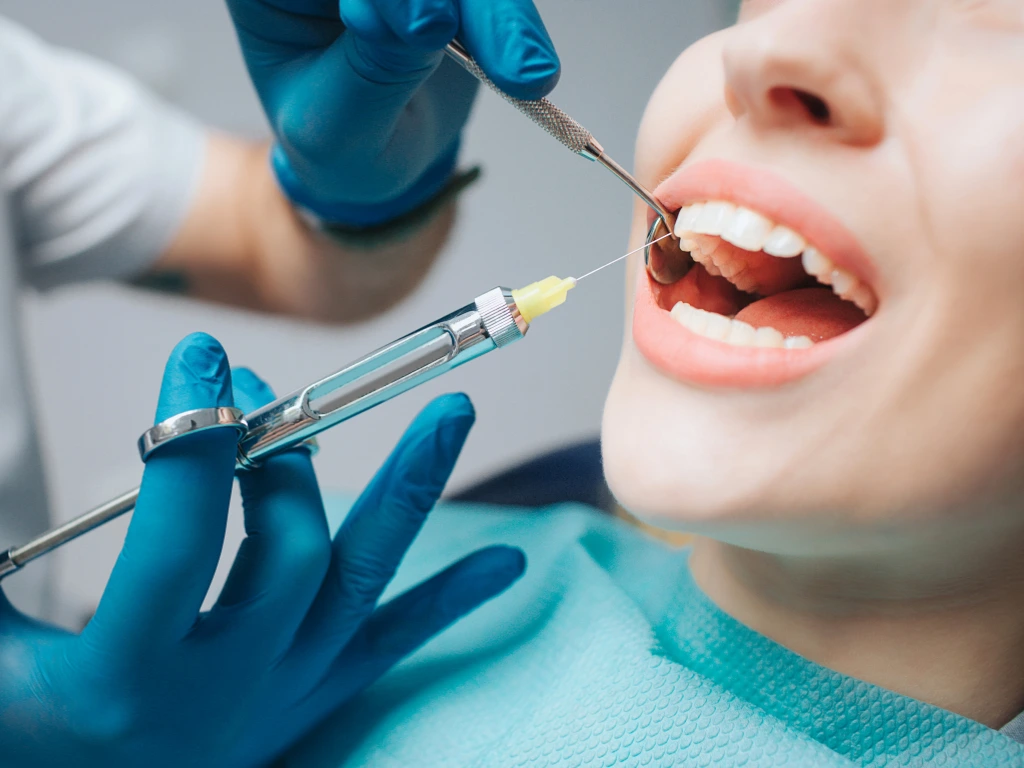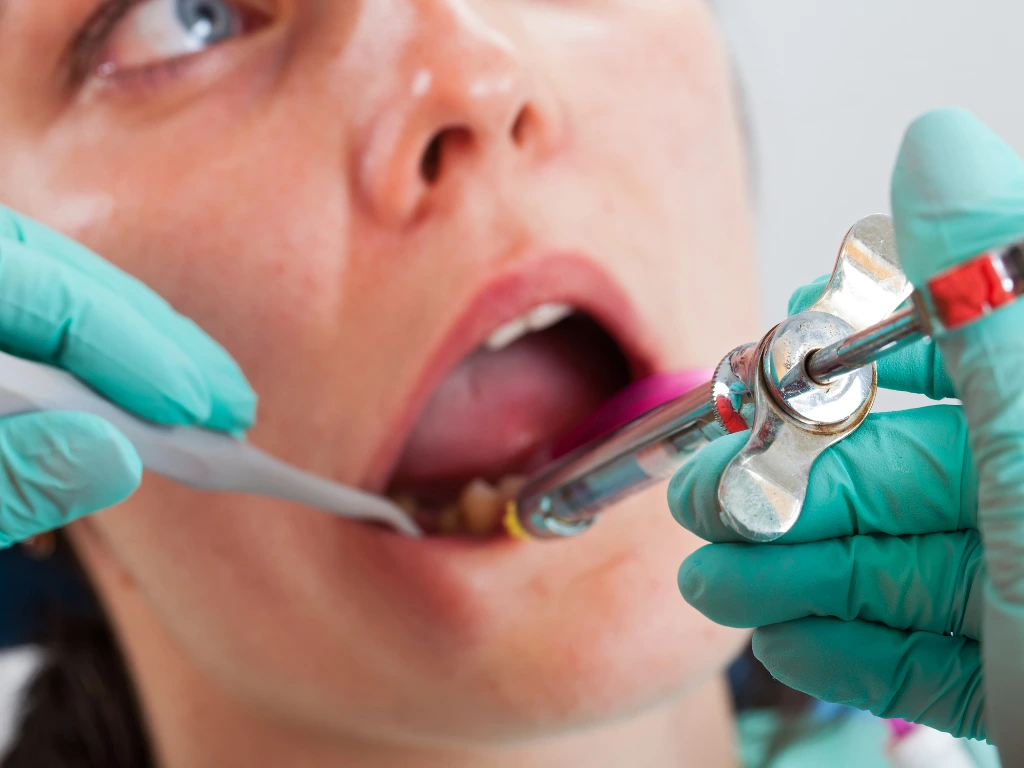How Long Does Dental Freezing Last?
If you’ve ever had a filling or dental procedure, you’re probably familiar with that odd, tingly numbness afterward. Many patients at Beacon Hill Dental Centre in Ontario, CA. Ask the same question: How long does dental freezing last? Whether you’re preparing for an appointment or recovering from one, understanding what to expect can help ease anxiety and keep you informed.
What Is Dental Freezing and How Does It Work?

Dental “freezing” is another term for local anesthesia, often administered via injection to numb the area being treated. It blocks nerve signals in your mouth so you won’t feel pain during the procedure.
- The most common anesthetic used is lidocaine, which starts working within minutes.
- It’s typically used for fillings, tooth extractions, root canals, or gum treatments.
- The freezing effect is temporary and wears off over time as your body metabolizes the drug.
How Long Does Dental Freezing Last?
On average, dental freezing can last 1 to 3 hours, depending on the type and amount of anesthetic used, your metabolism, and the procedure performed.
Most patients begin to regain normal sensation within 2–4 hours.
Factors that affect duration:
- Anesthetic type: It can last 2–3 hours.
- Injection site: Freezing in the lower jaw often lasts longer than the upper jaw.
- Individual response: Your age, weight, and health can affect how long the numbness lasts.
How Long Does It Take for the Numbness to Go Away After a Filling?
For a standard filling:
- Numbness typically fades within 1–2 hours after the procedure.
- You may notice tingling or a pins-and-needles sensation as the freezing wears off.
Avoid eating or drinking hot items until full feeling returns to prevent accidental bites or burns
Common Dental Freezing Side Effects

Most people experience only temporary numbness, but some minor side effects can occur:
- Slight swelling or bruising at the injection site
- Tingling sensation as nerves “wake up”
- In rare cases, prolonged numbness (usually temporary)
If your mouth remains numb longer than 5 hours, call our clinic for guidance.
How Long Does Lidocaine Last?
Lidocaine, a widely used local anesthetic, typically provides numbness for:
- 2 to 4 hours of effective freezing
- Effects can vary based on dosage and other medications
This makes it ideal for most routine dental treatments.
How Long Does Numbing Gel Last?
Over-the-counter numbing gels.
- Typically lasts 15 to 45 minutes
- Best for minor gum or tooth discomfort, not for deep dental procedures
Tips for Managing Numbness at Home
- Wait to eat: Chewing while numb can lead to injury.
- Stay upright: This helps increase blood flow and speeds up recovery.
- Warm compresses: Gentle heat on the cheek may help stimulate circulation.
When to Contact Your Dentist
Call Beacon Hill Dental Centre if:
- Numbness lasts more than 5 hours
- You experience significant swelling, pain, or allergic reaction
- You’re concerned about how your body is reacting
Your comfort and safety are always our priority.
Book an Appointment Today
If you’re feeling nervous about your next dental visit, you’re not alone. At Beacon Hill Dental Centre in Ontario, CA. We specialize in gentle, personalized care for patients of all ages, especially those who may be anxious or visiting for the first time.
Call us today at 905-336-2496 or book your appointment online to experience compassionate dental care that puts you at ease.
How Long Does Dental Freezing Last FAQs
How long does it take for dental freezing to wear off?
Dental freezing usually wears off in 1 to 3 hours, depending on the type of anesthetic and your individual response. Most patients regain full sensation within 2–4 hours.
Is it normal for my mouth to stay numb after a dental filling?
Yes, it’s normal. The numbness after a filling can last 1 to 2 hours. If it lasts more than 4 to 5 hours, contact your dentist.
What can I do if the freezing lasts too long?
If dental freezing lasts longer than 5 hours or causes discomfort, call Beacon Hill Dental Centre in Burlington. We can assess and guide to ensure you’re okay.
Are there any side effects of dental freezing?
Most side effects are mild and short-lived, such as tingling, swelling at the injection site, or temporary difficulty speaking. Serious side effects are rare.
How does dental freezing work?
Dental freezing works by blocking nerve signals in the area where it’s applied. This prevents pain during dental procedures and typically lasts a few hours.